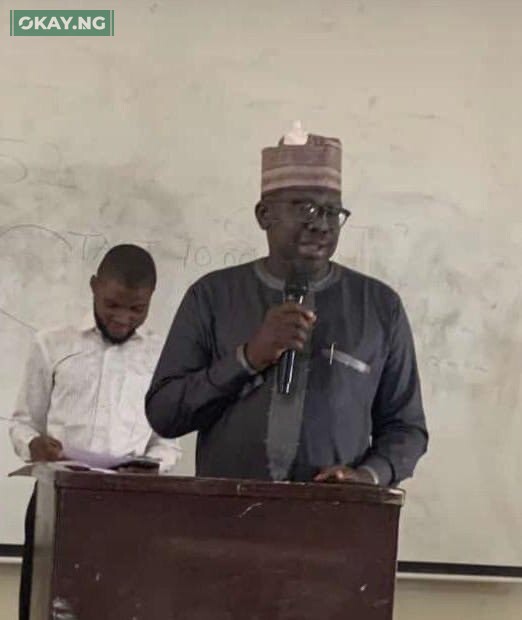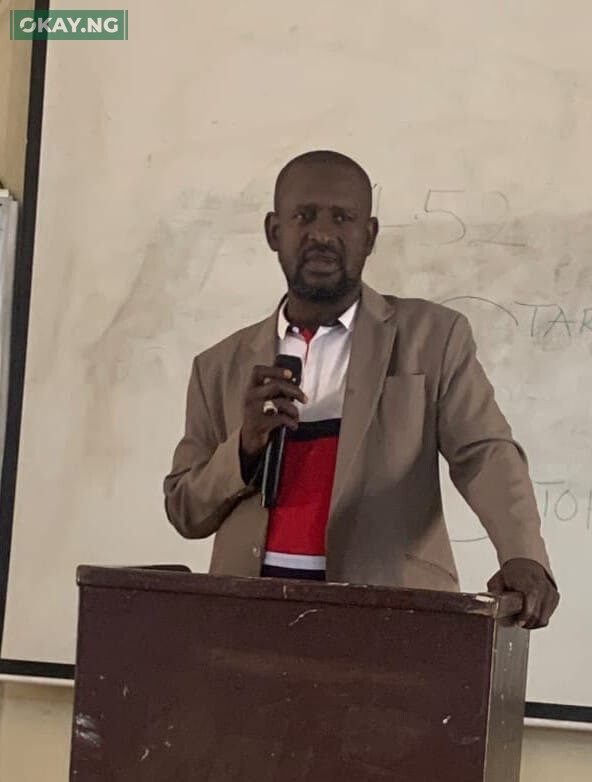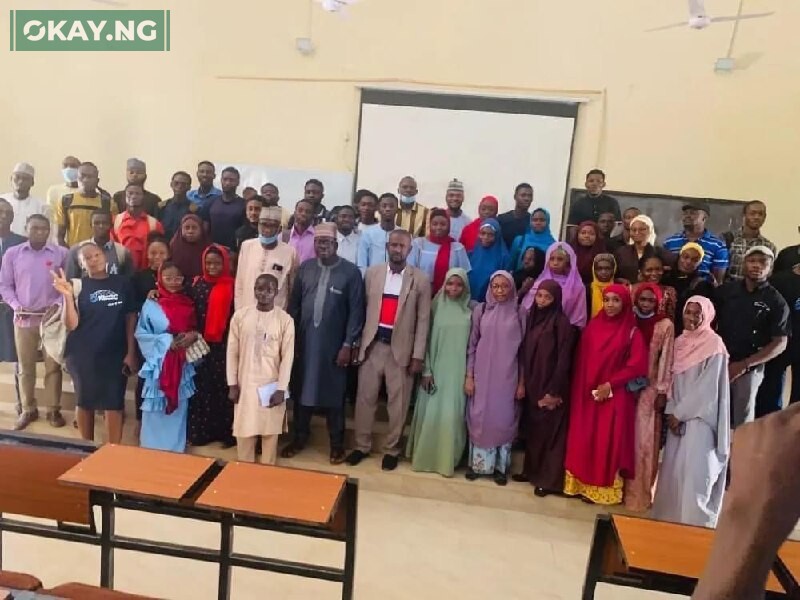Our lifestyles have changed significantly as a result of antibiotic use. The use of antibiotic medication, as prescribed by a doctor, can now cure illnesses that, in the past, could be fatal. Antibiotic resistance, on the other hand, is becoming more common and, in the opinion of the World Health Organization (WHO), “threatens to wipe away a century of medical progress.”
In line with the activities of the annual Antimicrobial Resistance (AMR) Week, the Usmanu Danfodiyo University Young Antimicrobial Resistance Stewards (UDUYARS) in Sokoto, a group of students from the northwest universities of Nigeria chosen for the Pan-African ambassadorial program with Students Against Superbugs (SAS-AFRICA) and headed by Mr. Zakariya’u Dauda, a student of the Faculty of Medical Laboratory Sciences (MLS), invited members of the university community to an on-campus meeting on November 26, 2022. The event was held at the Usmanu Danfodiyo University Teaching Hospital (UDUTH), Sokoto, at the College of Health Sciences (CHS) Auditorium. Dr. Zayyanu Umar from the CHS, Dr. Aminu Shittu from the Faculty of Veterinary Medicine (FVM), and MLS Rufai Abubakar and MLS Zainab Najim, all from the Department of Microbiology at UDUTH, are among the members of the university academic staff present.


The overall problem of AMR that was addressed begins when bacteria, viruses, fungi, and parasites evolve over time and cease to respond to medications, making diseases harder to treat and raising the risk of disease spread, life-threatening sickness, and death. The mechanism renders antibiotics and other antimicrobial medications ineffective. The AMR mechanism was explained in simple terms. People, animals, food, plants, and the environment all contain AMR organisms (in water, soil, and air). They can be transmitted from one person to another or between humans and animals, including through animal-sourced foods such as meat, milk, poultry, eggs, and fish. The misuse and overuse of antibiotics, a lack of access to clean water, sanitation, and hygiene for humans and animals, inadequate infection and disease prevention and control in hospitals and farms, a lack of access to high-quality, reasonably priced medications, vaccines, and diagnostics, a lack of awareness and knowledge, and a lack of legal enforcement are the main causes of AMR that were discussed at the occasion.
The speakers at the occasion suggested that a multidisciplinary collaboration of fields such as microbiology, climatology, ecology, mathematics, statistics, and social sciences be used because control of infectious diseases integrates a complex interaction of intrinsic and extrinsic factors for a clear understanding of the underlying causes, transmission, prevention, and control. All of these fields are important to the “One Health” concept. In order to improve public health outcomes, the WHO defines “One Health” as “an approach to designing and implementing programs, policies, legislation, and research in which multiple sectors communicate and work together to achieve better public health outcomes.”
“The UDUYARS plans to celebrate World Antimicrobial Awareness Week (WAAW) every year and will be delighted to collaborate with relevant stakeholders to help reduce the threat of AMR, both locally and globally.” — says Zakariya’u Dauda. For further reading, relevant published research papers on AMR (see the reference list below) were shared with the group of students through the UDUYARS.
The occasion was entertaining and encouraging. The event’s topic, “Preventing Antimicrobial Resistance Together,” was emphasized through a combination of scientific panel discussions, poetry readings, and drama. The ExCo members of UDUYARS came up with the idea for the on-campus AMR awareness campaign, which is on its way, and this was another significant accomplishment at the closing of the event.
FURTHER READINGS:
- Peter W. Smith, Michael Agbaje, Lerica LeRoux-Pullen, Deborah van Dyk, Legesse K. Debusho, Aminu Shittu, Mohamed M. Sirdar, Olubunmi G. Fasanmi, Oluwawemimo Adebowale, Folorunso O. Fasina (2019). Implication of the knowledge and perceptions of veterinary students of antimicrobial resistance for future prescription of antimicrobials in animal health, South Africa. Journal of the South African Veterinary Association. 90(1) – https://journals.jsava.aosis.co.za/index.php/jsava/article/view/1765
- Folorunso Oludayo Fasina, Lerica Le Roux-Pullen, Peter Smith, Legesse Kassa Debusho, AminuShittu, Saleh M Jajere, Oluwawemimo Oluseun Adebowale, Ismail Odetokun, Michael Agbaje, Modupe M Fasina, Olubunmi G Fasanmi, Deborah Van Dyk, Mohammed S Abubakar, Onakpa M Monday, Masaad G Ali, Hozaifa S Yousuf, Waliedin E Elmgboul and Mohammed M Sirdar (2020). Knowledge, attitudes and perceptions associated with antimicrobial stewardship among veterinary students: A multi-country survey from Nigeria, South Africa and Sudan. FrontiersinPublicHealth. – https://doi.org/10.3389/fpubh.2020.517964
Dr. Aminu Shittu is a lecturer and researcher at Usmanu Danfodiyo University in Sokoto. His research interests include quantitative epidemiology, farm animal health, and One Health. His other interests include medical journalism and science communication.
Email: ameen_vet@yahoo.com
WhatsApp: +234(0)806 548 9917
https://www.researchgate.net/profile/Aminu-Shittu-2









